Perşembe, 04 Temmuz, 2024
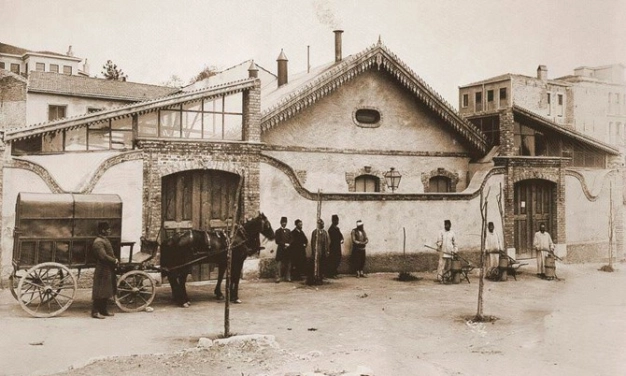 SÜMEYRA YARIŞ TOPAL
SÜMEYRA YARIŞ TOPAL
Due to the Covid-19 pandemic, just like any other major global city, the inhabitants of Istanbul had to suspend their social activities and stay at home. These days of quarantine were not the city’s first challenge. One hundred twenty-seven years ago, a total of 731 thousand people lost their lives during the cholera epidemic that caused great difficulties to Istanbulites with an interval of two years. Failed to stop the outbreak, the schools were closed for three months, and entries and exits were banned and delayed for curbing the spread of the disease. Istanbul’s days of cholera are as follows…
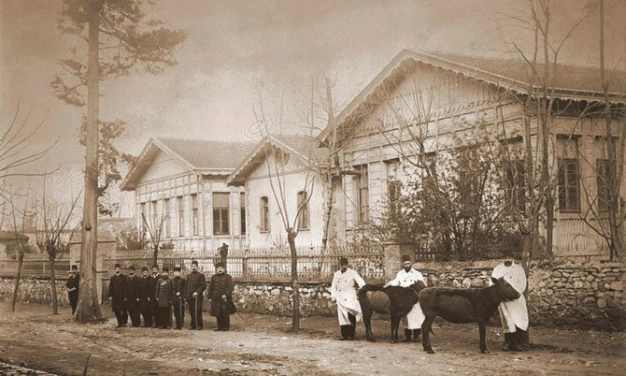 BRITISH VESSEL
BRITISH VESSEL
The first cholera case was identified on August 24, 1893, in Hasköy, Istanbul. The first epidemic lasted for eight months and the second one for 3.5.Habibe Sünbül, wife of Ahmet Efendi who was a civil servant at Feshane-i Amire (textile factory). All countries at the borders of the Ottoman Empire and other cities already experienced the cholera when the British vessel named George Fisher heading to Istanbul from Batumi brought the disease to the city. One of the ship’s crews came down with the illness and passed away at the British Hospital. Thus the disease spread to the whole city.
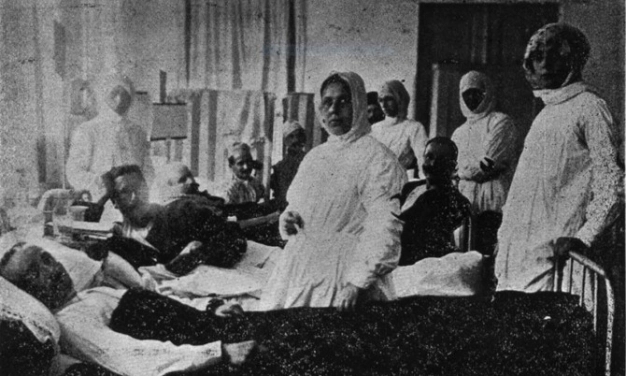 11 CHOLERA HOSPITALS
11 CHOLERA HOSPITALS
The number of cases increased one after another. Strict measures were launched immediately upon the decease of the first victim of the disease. Istanbul had already been prepared for the cholera epidemic that had been pushing its borders for months. Initially, eleven new hospitals were established in the city for the treatment of cholera. The houses with cholera patients were cordoned off and quarantined. In those times, the houses were roped off, and the quarantine was so strict that a policeman was assigned to every home, and designated officials fulfilled the household needs. Sadri Sema, who lived in those years, described the cholera disease in his memoirs as “Life became nothing but phenic acid, lime wash, funerals, and hunger.”
RESTRICTION ON FOOD
The most striking restriction had been on the food during the epidemic. Through a notification issued after the outbreak of the epidemic, avoiding all types of alcoholic beverages and iced water, showing ultimate attention to hygiene, sufficient consumption of meat and fiber-rich starch food, and having well-cooked food were advised. Istanbulites were also warned about the cleanliness of the drinking water. They were advised to consume natural spring water instead of dam water. Boiling the water and keeping it in sanitized containers was also recommended. By September, the sale of figs, corn, peaches, cucumbers, medlars, eggplants, tomatoes, melons, and watermelons was banned.As part of this restriction, the aforementioned produces entry to Istanbul would be prohibited, and they would be returned even if they reached the customs.
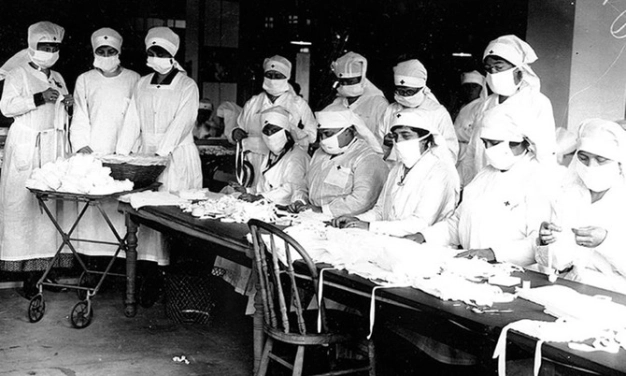 NO ENTRY TO ISTANBUL
NO ENTRY TO ISTANBUL
Quarantine was implemented at the entries and exits of the city to curb the epidemic in Istanbul. The passengers arriving in Istanbul by the Europe train would be kept in quarantine for five days upon their arrival at the city’s entry. The people leaving the city would also be put to quarantine. Moreover, the north-south direction of the town was roped off from Şile to Tuzla to prevent the passages from Istanbul to Anatolia by bypassing the quarantine.
SCHOOLS LOCKED DOWN
As the number of cholera cases rapidly increased in September, all schools were locked down, and education was suspended. The schools reopened in November yet had to be closed again upon the spread of the disease.
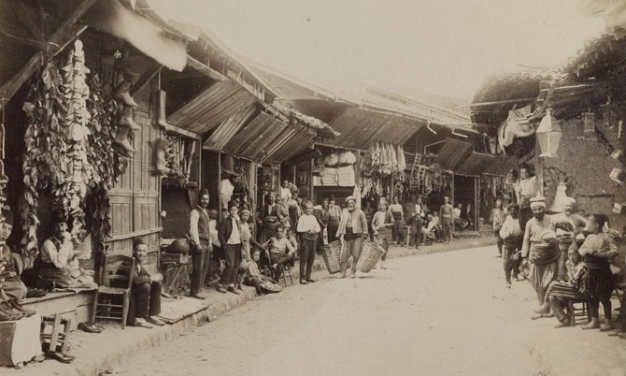 COST OF CHOLERA: 1 MILLION COINS
COST OF CHOLERA: 1 MILLION COINS
Throughout the fight against cholera in Istanbul, a total of 1 million 174 thousand and 833 coins were spent.
During the summer of 1893, the disembarkation of the passengers from the ships was banned.
To prevent the cholera patients from spreading the disease by disguising their condition and contaminating the community, a regulation stipulating the pharmacies to notify the municipalities of the citizens purchasing cholera drugs was issued.
The butchers’ hanging the meat outside their shops was banned.
Barbershops were banned from dropping the hair cut off to their floors.
The neighborhoods were coated with lime at nights.
The shopkeepers were banned from sitting outside their shops, pouring the water of the shishas was forbidden.
Flush toilets started to be built in the mosques.
The hunting and selling of seafood such as mussels, scallops, sea snails, oysters, crab, and lobsters were banned upon the thought that these food consumed by Christians during their fasts triggered the disease.
The workers staying at bedsits were sent to their hometowns in groups after quarantine.
NOT JUST CHOLERA
Istanbul witnessed hard times during the plague, typhus, and malaria as well. The plague outbreaks of 1803-1813, 1901, and 1919, the typhus epidemic of 1915 and malaria explosion of 1924, cast nightmares over the city.
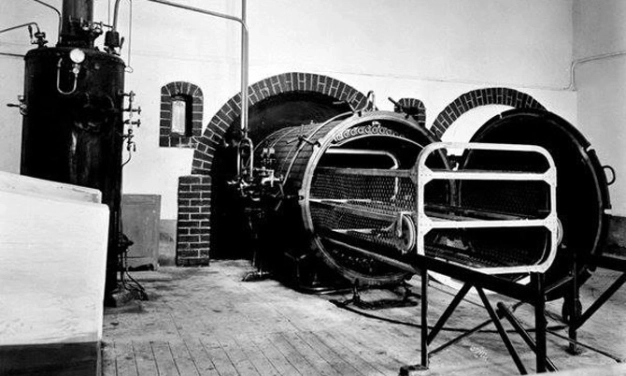 CLEANING AT 110 DEGREES
CLEANING AT 110 DEGREES
One of the most effective measures implemented against the cholera disease was the steam rooms known as ‘tebhirhane’. Three facilities founded in Istanbul disinfected the furniture and small wares of the houses with cholera patients at a heat of 110 degrees.
09 Eylül 2020 Çarşamba
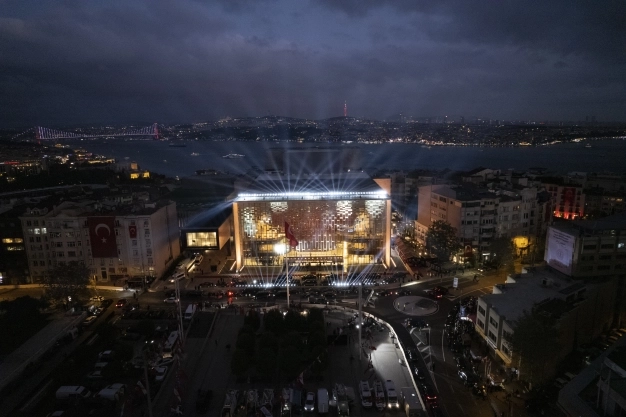 DİLŞAH KEFLİOĞLU
DİLŞAH KEFLİOĞLU
President Recep Tayyip Erdoğan laid the foundation of Atatürk Cultural Center for its reconstruction project on 10 February 2019. The centre was opened after the completion of the project in 2.5 years.
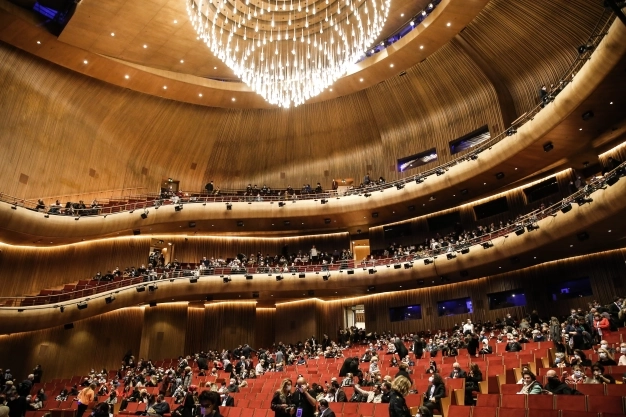 The opera sphere in AKM’s entrance was built with 15 thousand unique handmade red ceramic tiles. The design of the building’s façade aimed maximum benefit from daylight, and a green roof system was applied with an environmental-friendly approach. The opera hall, named the grand hall, features a foyer with nearly 4 thousand 500 square meters and seats 2040 people. The pit in the lobby has sufficient size to host a massive orchestra of 118 people.
The opera sphere in AKM’s entrance was built with 15 thousand unique handmade red ceramic tiles. The design of the building’s façade aimed maximum benefit from daylight, and a green roof system was applied with an environmental-friendly approach. The opera hall, named the grand hall, features a foyer with nearly 4 thousand 500 square meters and seats 2040 people. The pit in the lobby has sufficient size to host a massive orchestra of 118 people.
A MOVING STAGE
The stage mechanics and systems are built with the world’s leading technologies. They comprise a 65-meter stage depth, four main stage elevators, 13 compensator elevators in the side and backstages, and four mobile wagons that will remain above these. Besides, there is a rotating stage wagon in the main hall. All halls of AKM are furnished with top-level equipment in terms of acoustic, sound, lighting and displaying systems.
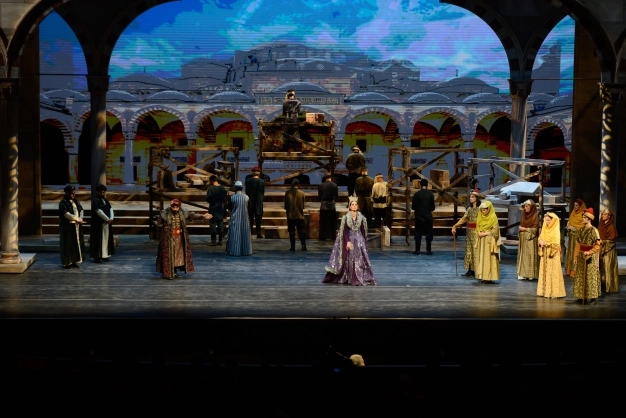 COMPRISES OF FIVE BLOCKS
COMPRISES OF FIVE BLOCKS
AKM’s halls were designed acoustically, and the built orchestra shell offers an excellent sound quality in plays and concerts asa homage to original AKM’s ceramic artist Sadi Diren. The centre and the spiral staircase in the original centre’s foyer were restored to their original design. The centre comprises five blocks founded over a field of 30 thousand square meters, and AKM has an indoor space of 95 thousand square meters. The natural stone coating over the façade and internal venues of AKM draw attention.
A MODERN DESIGN
There are four basements with a total size of 48 thousand and 705 square meters, a stage, backstage rooms, foyer areas, workshop and storage areas, ballet practice lounges, practice rooms for soloists and orchestras, a recording studio, rehearsal rooms, art galleries and exhibition rooms and coffee shops. Furthermore, the rehearsal halls, recording studio, soloist and orchestra practice rooms were designed in a modern way acoustically.
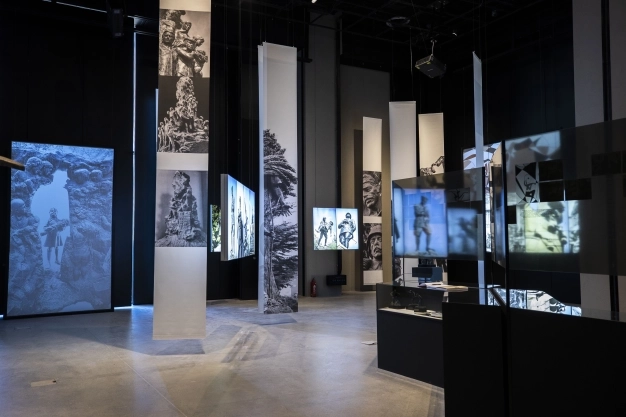 DESCENDED FROM FATHER TO SON
DESCENDED FROM FATHER TO SON
Architect Hayati Tabanlıoğlu conducted the construction of AKM in 1956-1969, and it is one of the original premises of one of Taksim Square’s symbols. After the big fire in 1970, AKM opened again in 1977. The centre used to seat one thousand and three hundred people; however, it was transformed into a complex after the reconstruction by increasing its capacity and functions. Architect of the new AKM is the son of center’s original architect Hayati Tabanlıoğlu’s son, Murat Tabanlıoğlu.
A CULTURE STREET
As part of the AKM project, Culture Street includes an art gallery, movie theatre, restaurant, café, a book café, arts centre for children, a music platform, library, a design shop, and a multifunctional lounge.
Another significant aspect of the AKM project is that the centre gained a 24-hour living area to the neighbourhood with a connection from the Taksim Square to Istanbul Technical University’s Taşkışla Faculty and Atatürk Library. With the new centre, a second square will be formed in congress valley direction, where Atatürk Library and Istanbul Technical University remain.
22 Şubat 2022 Salı
 HAMİT KARDAŞ
HAMİT KARDAŞ
The postgraduate programs designed by the Istanbul Commerce University based on the requirements of the business realm offer career opportunities to international students wishing to come to Türkiye for education. There are postgraduate and PhD programs in the University for those wishing to upgrade their degrees. Expert academicians and special facilities carry out the postgraduate programs. Postgraduate courses are performed in five institutes within the body of COMMERCE.
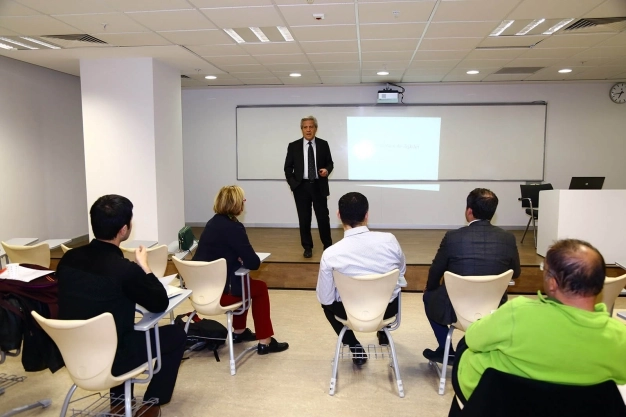 INSTITUTE OF FINANCE
INSTITUTE OF FINANCE
As Türkiye’s first institute in finance, this institute is structured with an integrated perspective by taking Istanbul’s private and public sector focused finance theory, management and policy, financial economy, and applied finance compatible with Istanbul’s aims to become a global finance centre into consideration. The institute offers four postgraduate and two PhD programs.
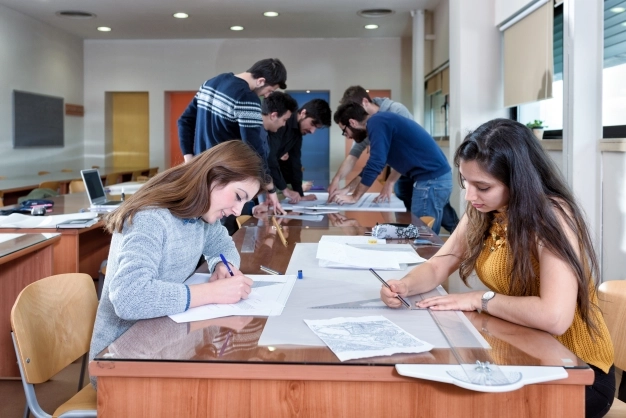 INSTITUTE OF COMMUNICATION SCIENCE AND INTERNET
INSTITUTE OF COMMUNICATION SCIENCE AND INTERNET
The first institute focusing on the internet area, the Communication Science and Internet Institute, aims to develop the new theoretical perspectives and research methodology deemed lacking in the area, reveal interdisciplinary research forms, and improve data generation for its implementation in required areas. The institute offers PhD programs and thesis and non-thesis master programs.
FOREIGN TRADE INSTITUTE
With the privilege of being Türkiye’s first Foreign Trade Institute, this institute conducts practices and research on a sectoral basis towards the market and launching academic level postgraduate programs. Thesis and Non-Thesis Master programs are available in the institute. Moreover, PhD programs in two different areas are offered.
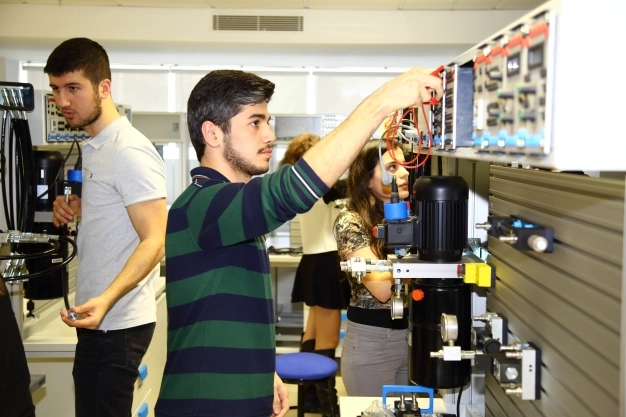 SOCIAL SCIENCES INSTITUTE
SOCIAL SCIENCES INSTITUTE
Social Sciences Institute is carrying out education and research activities with many programs prepared in line with the sector’s requirements. Doyens in the finance and real sector are among the institute’s academic staff.
INSTITUTE OF SCIENCE
Institute of Science offers postgraduate and PhD programs with eleven different programs. Urban Systems and Transport Management, Conservation and Restoration programs within the structure of this institute are the leading postgraduate programs in this area in Türkiye. The Cyber Security PhD program stands out as well.
For the postgraduate programs of the University: https://international.ticaret.edu.tr
MASTER’S DEGREE IN COMMERCIAL DIPLOMACY
Commercial Diplomacy Postgraduate Program is Türkiye’s first and only commercial diplomacy program. The program continues to accept applications. Commercial diplomacy is a vast area where negotiations in multiple aspects are carried out to solve disputes that hamper global trade. Joint solutions are generated, and international cooperation is developed through signing agreements on commerce and investment.
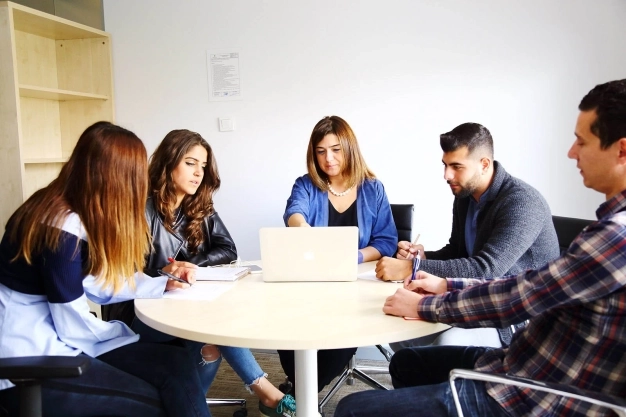 Commercial Diplomacy Department Head Assoc. Prof. Uğur Yasin Asal stated that through the postgraduate program, they aimed to train graduates who has in-depth knowledge of commercial diplomacy terminology, who can build intercultural communication,who attach importance to entrepreneurship and wish to enhance entrepreneurial skills and academic aspect of commerce as commercial diplomacy experts.
Commercial Diplomacy Department Head Assoc. Prof. Uğur Yasin Asal stated that through the postgraduate program, they aimed to train graduates who has in-depth knowledge of commercial diplomacy terminology, who can build intercultural communication,who attach importance to entrepreneurship and wish to enhance entrepreneurial skills and academic aspect of commerce as commercial diplomacy experts.
 MOST PRESTIGIOUS GLOBAL EDUCATION INSTITUTION OF THE YEAR
MOST PRESTIGIOUS GLOBAL EDUCATION INSTITUTION OF THE YEAR
Istanbul Commerce University was declared as the year’s most prestigious educational institution in the private education institutions category by The ONE Awards, one of the most exceptional standards in its area. For the seventh time, the award ceremony of the ONE Awards was executed with the cooperation of Marketing Türkiye and Akademetre Research and Strategic Planning. In addition to the brands increasing their prestige the most in the year, media, PR, advertising and digital marketing agencies that played a role in this success were awarded. Celebrating its 20th year of establishment, Istanbul Commerce University was awarded as the year’s most prestigious educational institution.
Istanbul Commerce University’s President Prof. Dr. Yücel Oğurlu mentioned that they were proud to receive the award and said, “The momentum gained by our University in the recent period is very pleasing. We will not be satisfied with this and work more to enhance the value of our University’s diplomas.”
THE HIGHEST OCCUPANCY RATE
Istanbul Commerce University achieved a hundred per cent success in this area by launching the online education system in the swiftest during the pandemic. The University remained in the educational institutions to achieve the highest occupancy rate among the foundation universities and filled 95.5% of its capacity this year.
400 ONLINE EVENTS
Istanbul Commerce University is among the most preferred universities for postgraduate degrees. The University carried out its social responsibility projects academic and cultural activities throughout the pandemic and held over 400 online events in the past year.
22 Şubat 2022 Salı
22 Şubat 2022 Salı
22 Şubat 2022 Salı
22 Şubat 2022 Salı
22 Şubat 2022 Salı
22 Şubat 2022 Salı